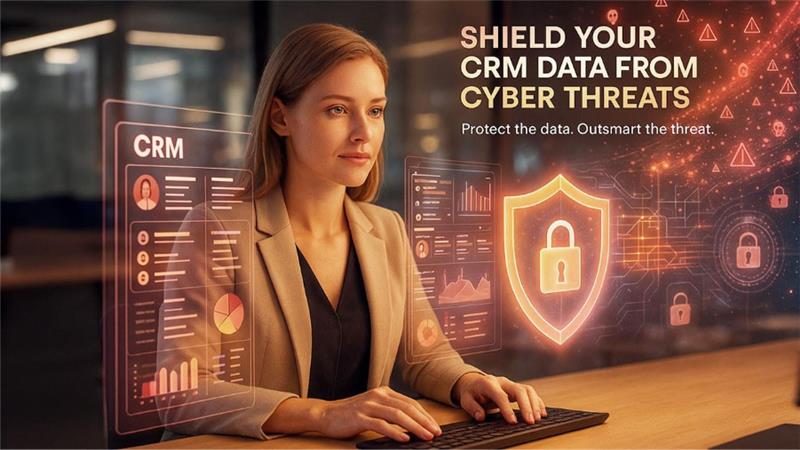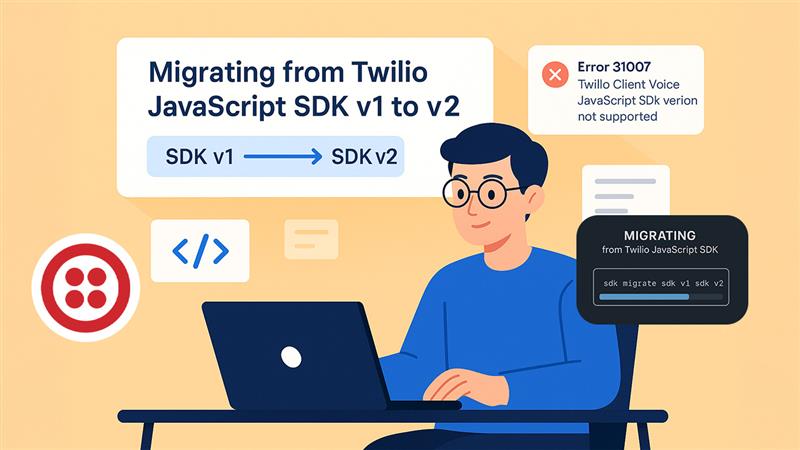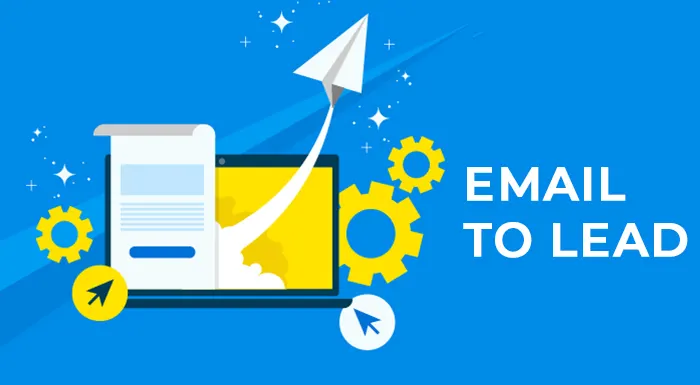Customer data is one of the most valuable possessions of any business. It includes the names, addresses, likes, payment details, and purchase history of every customer who has ever had an interest in the business.
When something goes wrong, such as when a security incident or data breach takes place, the damage is much more than “just” data leaks. It destroys trust, damages reputation, and sabotages funding. Today’s interconnected world transforms how businesses protect CRM data from potential vulnerabilities. Ensuring data security is more than just a convenience; it’s become a necessity.
Why Do Hackers Target CRM Data?
CRM databases are treasure troves of information. They hold details about customers, suppliers, and employees. For hackers, this data can be used for identity theft, to run phishing schemes, or to sell on the dark web. Small businesses often think they’re too small or unimportant to be targeted, but hackers know that smaller firms usually have weaker defense systems and are, therefore, easier to breach.
Imagine a small online shop using a standard CRM system to manage orders and campaigns. If someone were to gain unauthorized access, they could export every customer’s email, address, payment card info and purchase history. That stolen data can then be monetized through black-market sales, fraudulent purchases, or social-engineering attacks on customers.
Strategies to Protect CRM Data of Small Businesses
Every company that stores customer data faces some level of risk. The key is knowing where to focus your efforts; these steps should help you start in the right place.
Start With The Basics
Protecting CRM information begins with good practices. Strong, one-of-a-kind, complex passwords should be standard. Teach employees not to reuse the same password on multiple systems, and to turn on two-factor authentication wherever it exists. Even if someone steals a password, they would still need a second code to get in.
Also, keep all company devices and software up to date. Outdated systems are one of the easiest ways for hackers to slip in unnoticed. The update notifications you receive often include patches that fix security vulnerabilities. By keeping CRM software and OS up to date, companies – and employees – close many of the doors that intruders might use.
Restrict Access
Not everyone in the business requires full visibility into the CRM. The marketing team might only need email addresses of customers, while payment details might be necessary only for specific members of the finance team. Giving everyone access equates to more vulnerabilities; that’s what Just-Enough-Access or Just-Enough-Privilege is all about.
It’s also a strong security practice to audit who has access every couple of months. People get hired and fired, roles change, and sometimes accounts get forgotten. Removing old or obsolete permissions reduces risk considerably.
Watch What's Happening
Keeping an eye on activity can identify issues early on before they spiral out of control. Most CRM software has monitoring features that alert managers if anything unusual happens, like if someone logs in from abroad or starts downloading large amounts of data. Spotting unusual activity early can be the difference between a small problem and a serious incident such as a data breach in the future.
A single breach can expose thousands of customer records, trigger legal costs, and damage a company’s reputation overnight. Even large organizations have suffered multimillion dollar losses after failing to detect an attack in time.

Regular backups are also important. Even if hackers manage to damage or destroy data, a backup ensures that a company can restore their operations quickly without losing business. Cloud services do have automatic backup, but it’s also smart to test them at regular intervals to make sure they’re working as they should.
Protect The Connection
It's not always about the CRM software itself; for companies, how employees connect and access company systems is relevant as well. Home Wi-Fi and public Wi-Fi especially are a vulnerability if open to access company systems for remote workers. Every reputable company should require employees to connect via a VPN to help protect the connection between the employee's workstation and the company network. This makes it harder for an outsider to intercept sensitive information.
Remind staff not to log into corporate accounts using public Wi-Fi networks found in airports or coffee shops. Public networks are typically insecure, and attackers can easily intercept the information being sent.
Train Your Staff Regularly
Technology alone isn’t enough. An IBM Cyber Security Intelligence Index Report stated that “Human error was a major contributing cause in 95% of all breaches.” Oftentimes, cyberattacks start with something as harmless as a phishing email that looks real but contains a harmful link. Training employees to be on alert for suspicious emails can prevent a lot of trouble.
Short annual training sessions or quarterly reminders about online safety can be real eye-openers for staff. Encourage employees to pause before clicking links or opening attachments, especially if an email seems urgent or unexpected. Teach them to pay close attention to details, like sender address, message contents and hovering over links before clicking them.
Choose Credible Partners
If your company uses a third-party CRM vendor, look at their security credentials. Most decent companies are forthcoming about how they secure information. Look for clear policies regarding encryption, data storage, and privacy. Don't be afraid to ask them questions either. After all, this is your company’s and your customers’ data.
It’s also important to know how companies protect CRM data. Some services keep information stored in a number of countries, and data protection policies vary. Knowing this makes it simple to make the proper choices regarding what platform will be the best for your business' needs.
Make Security A Habit
Data security isn’t a one-off, “install and forget” task. Threats evolve constantly, and your protection should too. Schedule regular reviews of your CRM setup and update policies as your company grows. What worked for a team of five may not be enough for fifty.
Finally, remember that honesty matters to customers. If a mistake happens, being transparent and responsive builds far more trust than trying to hide the problem. A business that takes responsibility for its data is one people feel confident doing business with.
Conclusion:
Safeguarding CRM records doesn't need a large budget or a specialized IT department. It begins with identifying the problems early and implementing proactive steps to lower them. A robust protection strategy requires a strong password, restricted unauthorized access, continuous tracking, a secure environment, and consistent employee training to set the foundation.
Especially small-sized businesses may not have enterprise-grade resources, but they still utilize intelligent security strategies that mean the world of difference. The aim is not to increase accuracy but instead to make progress. Every proactive step you take makes things tougher for attackers to succeed and allows businesses to protect CRM data effectively.
More than a checkbox, cybersecurity is a consistent process. Since your business increases and cyberthreats evolve, your strategy may also be updated too. By adopting robust data protection practices within your business, you’re not just securing data; you’re establishing trust with your clients who decided to partner with you.








